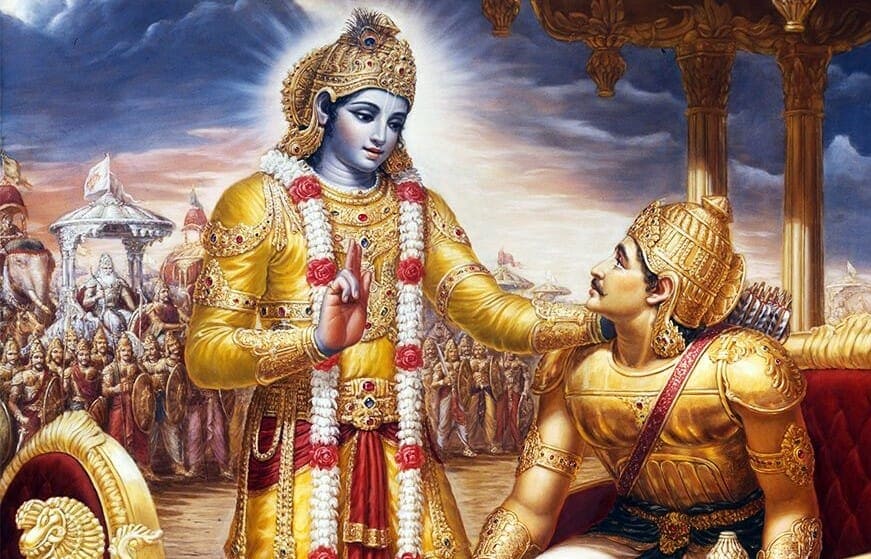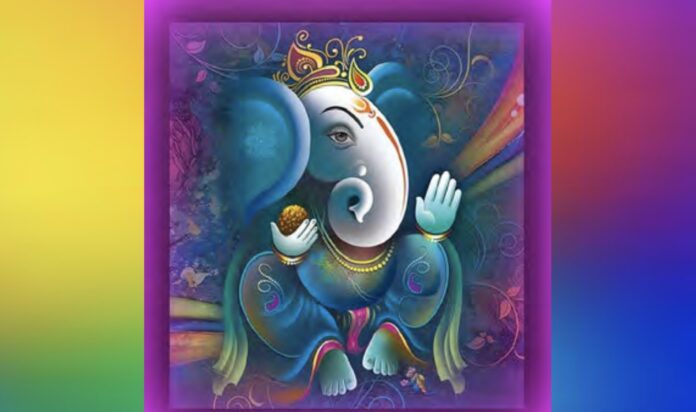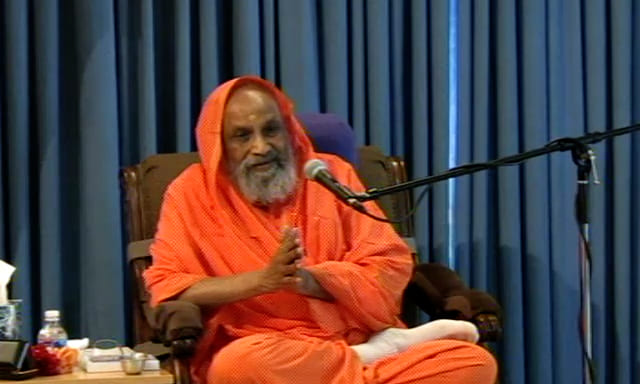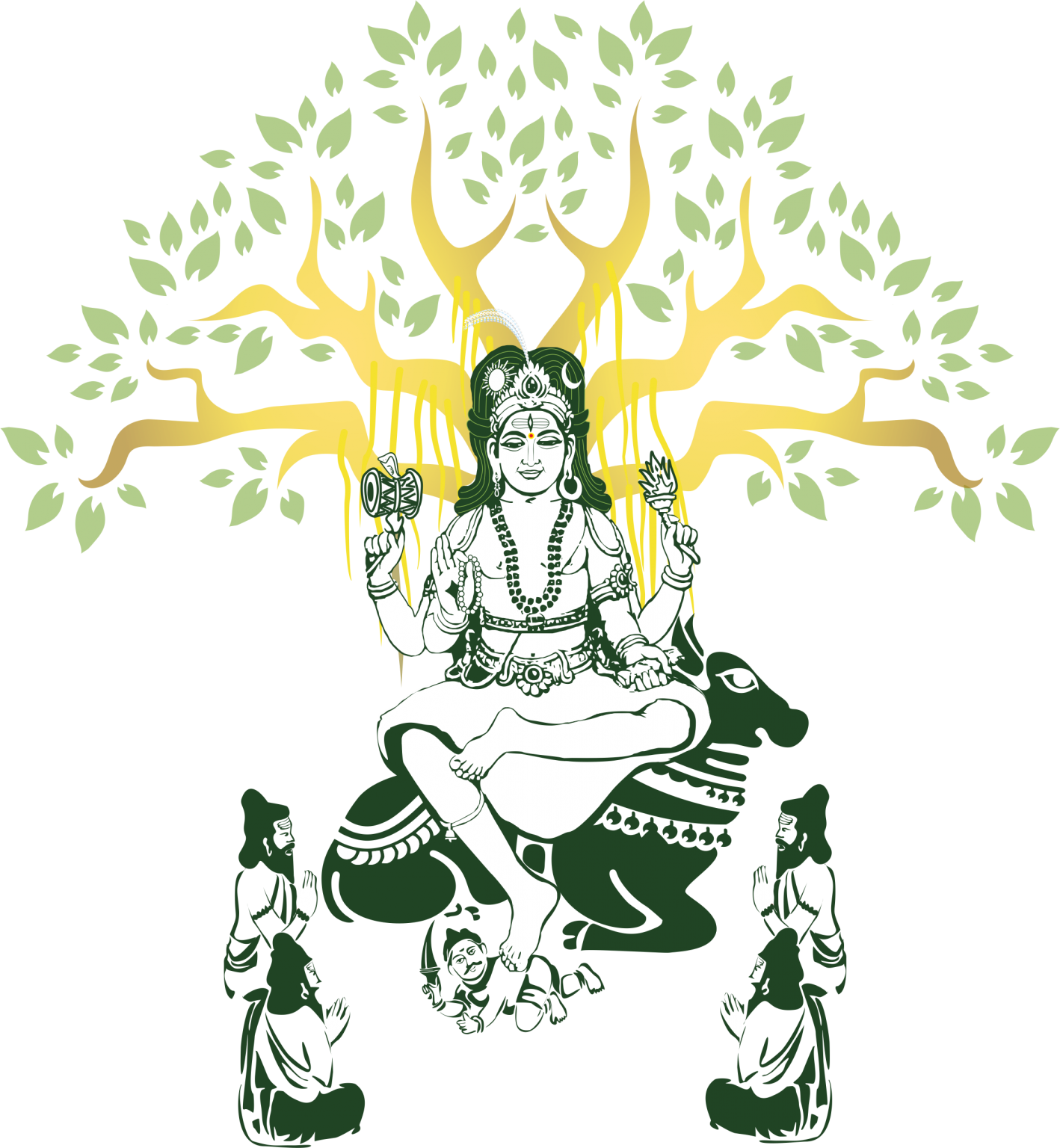Swami Dayananda Saraswati
Whether true or not, the following story in the Mahābhārata about events preceding the impending war of Kurukṣetra tells us that the difference between success and failure is not merely effort. In seeking Krishna’s help, both Arjuna and Duryodhana went to the place where Krishna was resting and walked in. Duryodhana arrived first and Arjuna came later. Krishna was asleep and they did not want to disturb him, so Duryodhana sat by the side of his head and Arjuna stood at his feet. Krishna woke up and saw Arjuna first. Duryodhana was alarmed, and made his presence felt, saying, “I came first.” Both had come to solicit Krishna’s help and there is a convention that if there is going to be a competition, the man who comes first should be given the first choice.
Lord Krishna was faced with a peculiar situation. He saw Arjuna first, but Duryodhana had arrived first. Who should be given the first choice, Arjuna or Duryodhana? Krishna gave Arjuna the first choice because he saw him first. He specified what the choice would be, however. Krishna said, “I will be with you but I will not fight. I won’t touch my cakram or my gadā. Do you want a non-fighting Krishna or my fighting army?” Krishna was a yādhava and the yādhavas were invincible. They had a boon that no non-yādhava could defeat a yādhava, so having the yādhava army on one’s side spelled certain victory. If Duryodhana could ever pray, this must have been the time that he prayed! Arjuna smiled and without hesitation said, “Krishna, please be with me.” Duryodhana was mightily happy that Arjuna had turned down the victory that had been offered to him on a platter. He had been afraid that Arjuna would ask for the army. Duryodhana was ecstatic. “What a sentimental fool Arjuna is! He wants Krishna with him. One more mouth to feed during wartime. Sentiments never win wars,” he thought.
With Arjuna having chosen Krishna, Duryodhana got the entire yādhava army on his side in the war. Krishna teased Arjuna “Hey, I offered you the entire army. Don’t you think the army makes a difference?” Arjuna told Krishna, “In you and in your grace, I see the factor that makes all the difference between success and failure.” Duryodhana thought that the army made the difference between success and failure. Arjuna did not think any differently. He knew that in war an army is important, that armor is important and that missiles are important. But when it came to choosing between Krishna and his army, he chose Krishna. What does Krishna stand for? If Lord Rāma was the dharma-vigraha, the embodiment of dharma, Lord Krishna was an anugraha-vigraha, the vigraha, embodiment of grace. The difference between success and failure is not only effort, but an additional factor called daiva or grace. Arjuna chose Lord Krishna because, while prayatna or effort, and time, kāla, as well as resources are necessary, this element of grace makes the difference between success and failure.
There is something that we face which is not visible and can stand like a wall between us and what we want to accomplish. Our masters recognized this. This is not unique to the Vedic culture; in every culture there is a word for luck. Even primitive man understood the concept of luck when he went out hunting and returned with either a squirrel or a deer. To be in the right place at the right time is not in our hands. This is the human experience that we face all the time. Arjuna knew this very well. That is why he was called an āstika, one who accepts the veracity of the Veda. Duryodhana was the opposite, a deliberate nāstika in his persistent erroneous thinking. Arjuna handed over the reins to Krishna and knew that grace was not away from him. It was Krishna who sat in front of Arjuna in the chariot and every arrow had to pass him first. He was putting himself in a dangerous situation to save Arjuna. So mere effort does not account for the difference between success and failure.
Some call this unknown element God’s grace or the grace of God. Does this mean that God should wonder to whom to give his grace everyday? What is the basis on which he distributes his grace? Does he give grace to one, no grace to another and disgrace to yet another? This is all irrational. One person told me, “Swamiji, I had a flat tire. It was cold and I pulled over, but nobody would stop their car to help me. Finally, after an hour, by God’s grace, somebody stopped the car and helped me.” If God’s grace gave you some help, why did he allow you to get a flat tire in first place? Then he made you shiver in the cold for one hour! Where was he earlier? Was he angry with you in the beginning for one hour? Nobody can answer such questions.
There is no such ‘God’s grace’. There is only karmaphala, the result of karma. God, whom we call Īśvara, is the laws and everything that manifests, and does not manifest, according to those laws. Everything here is Īśvara. You have a will, desires, and ambitions. All of this is much more than the animals have. Only human beings have ambitions, so it is a privilege to have ambitions, it is a privilege to have desires. But then, you need to fulfill those desires, and in order to fulfill them, you have to make choices between the different means available. You can either follow dharma, what is proper or right, or follow an adharmic path, abandoning ethical norms.
In every achievement there is a right means and a wrong means. There are means and ends, causes and effects, actions and reactions. All these are given. If, in choosing means and ends, I follow what we call dharma, ethical norms which are commonly accepted by all of us, I will say that there is no problem. The problem arises when you rub against this law of dharma. When you rub against a tree, the tree will rub against you. Don’t accuse the tree. It is you who chose to rub, and found that you were rubbed back. If you are angry and rub more forcefully, you will only begin to bleed. This is where grace comes in.
Where there is dharma you cannot avoid karma. Essentially, the other side of dharma is karma. Karma does not exist independently of dharma, and only dharma makes karma work. There is a law of karma, which is that if you go against dharma, you have to pay the price. Because of sheer muscle power, or the power of wealth, you may get away with something, but if it goes against the whole system of laws, those laws will shape a result that will exact a price from you for that action. So respect dharma and be such that you live a life of dharma. Live a life of least resistance to the law that is Īśvara, a life of no ‘rubbing’. This is not an easy thing; it is the truth of living. One who lives in this way lives a life of dharma, and such a person is called a sādhu. Parakāryam sādhnoti iti sādhuḥ, the one who helps others accomplish things is a sādhu.
The word sādhu is commonly used to describe a simpleton, someone lacking in common sense, pragmatic concerns, and ambitions. We are not talking about this. We are talking about practical, ambitious people who want to accomplish things, to do things. Then dharma and karma both come together. You choose your means to achieve your ends. But to achieve these ends and to grow into a complete person both morally and emotionally, you should necessarily have some grace.
To become this complete person, who alone can achieve mokṣa, the final end, we require grace. For this we need to perform karma that is meant to earn grace and not merely karma that is directed towards a desired end. We need to perform karma specifically designed to earn grace. What we call grace is karmaphala; the result of our karma. This karmaphala can be desirable to us, puṇya, or undesirable, pāpa. It is a desirable result, puṇya, to get some grace.
Every human being is a miṣra, a mixture, of puṇya and pāpa, which unfold constantly in our lives. We need to neutralize the pāpa, and that is why the Vedas ask us to neutralize the effects of our wrong actions, our durita-karmas, every day, through prayers such as sandhyāvandana, etc. Everybody can help himself with some grace. One way of earning grace is through daily prayers or special prayers. This is prayerfulness, or accepting the necessity of grace, daiva, just as Arjuna did when he fought his way to success, making sure that Krishna was with him. We can be prayerful and fight our way to achieve what we want.
Prayer is the only deliberate action to achieve a desired end, puruṣārtha, where one is not under pressure. It is something that you can either choose to do or choose not to do. “Swamiji, I pray only when I am under pressure because things do not go well.” But why should you pray? You can do a lot of other things. You could hit your head against the wall, or drink yourself to death. It really takes something else to be able to pray. Initially, a mother can encourage a young child in order to create a value for prayer, to make him or her accept that there is something more than what meets the eye. But nobody can pressure the child to pray. Prayer is the effort of a religiously pragmatic and objective person, to control the existing probabilities that are not conducive to him or her. Prayer is the means of controlling hidden obstacles.
Another deliberate means of achieving the same result is to reach out to people, to help others, because in helping another, you grow. The best help is given by a person who does not think that he is helping another, but feels that he is given a chance to help. Now. Later, he may need help from another, because everybody needs help. Don’t take anything for granted, because you are helped all the way. A human being is a consumer, whether rich or poor. You need the doctors’ help; even doctors need other doctors. In this litigious society, you may need a lawyer’s help at any time. Even the food on your table is the result of the efforts of so many others. As a child, you are only a consumer and not a contributor. Once you become an adult, you have to become a contributor also. Anyone who reaches out and contributes more than he takes is more mature, more grown up and a better adult.
Reaching out to help others is called a pūrta-karma; it is providing a place for harvesting water, vāpi, a public well, kūpa, a pond for the cattle, taḍāka, even a temple for common worship, devatāyatana. It provides a place where food is given, annapradhāna, a resting place for wayfarers, ārama, and schools and hostels, etc. All these are pūrta-karmas. They all earn grace—and we need a lot of grace.




